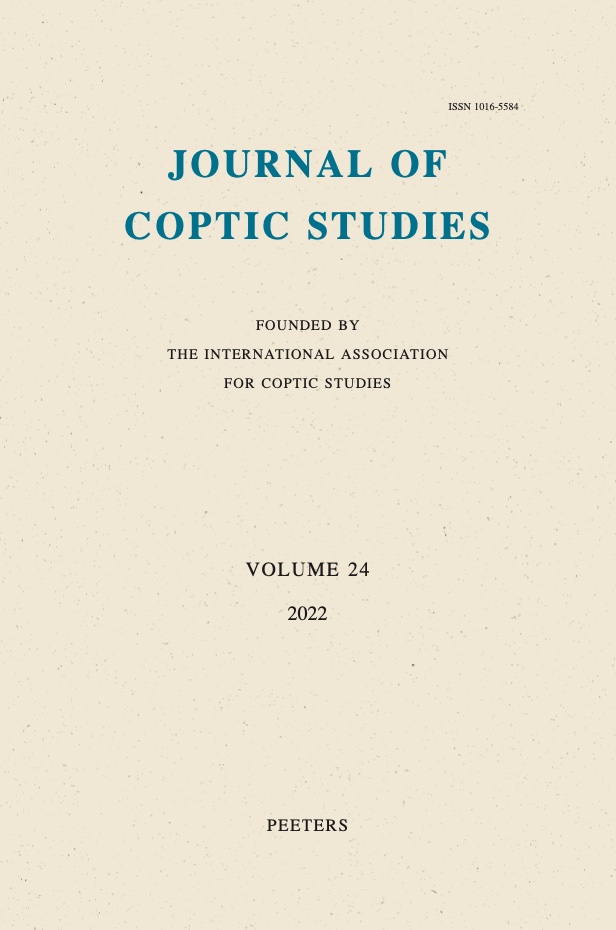next article in this issue  |

Preview first page |
Document Details : Title: The French Role in Early Nag Hammadi Studies Author(s): ROBINSON, James M. Journal: Journal of Coptic Studies Volume: 7 Date: 2005 Pages: 1-12 DOI: 10.2143/JCS.7.0.632464 Abstract : After his conquest of Egypt, Napoleon left behind a large staff of scholars, who continued their work long after the British had taken over and Napoleon was gone. Hence Egyptology began with the massive Napoleonic multi-volume Description de l’Égypte, ou Recueil des observations et des recherches qui ont été faites en Égypte pendant l’expédition de l’armée française, publié par les ordres de sa majesté l’Empereur Napoléon le Grand. This was followed by the first great French Egyptologists, Jean François Champollion (1790-1832), the decipherer of hieroglyphs, and François Auguste Ferdinand Mariette (1821-1881), the founder of the Service des Antiquités, as well as by the founding of the Institut français d’archéologie orientale du Caire. Ever since, Egyptian archeology has been led by French scholarship. The Directeur general of the Service des Antiquités was at the time of the Nag Hammadi discovery a French Abbé, Chanoine Étienne Drioton (1889-1960), and the Directeur du Musée Copte was a Copt who had studied under him in Paris, Togo Mina (1906-1949). Furthermore the “présence française” gave the tone to international Cairene society. Still today, the transliteration of Arabic names in Egypt usually follows the French system. Thus it is not surprising that the first contacts of scholarship with the Nag Hammadi codices were French. |
|


